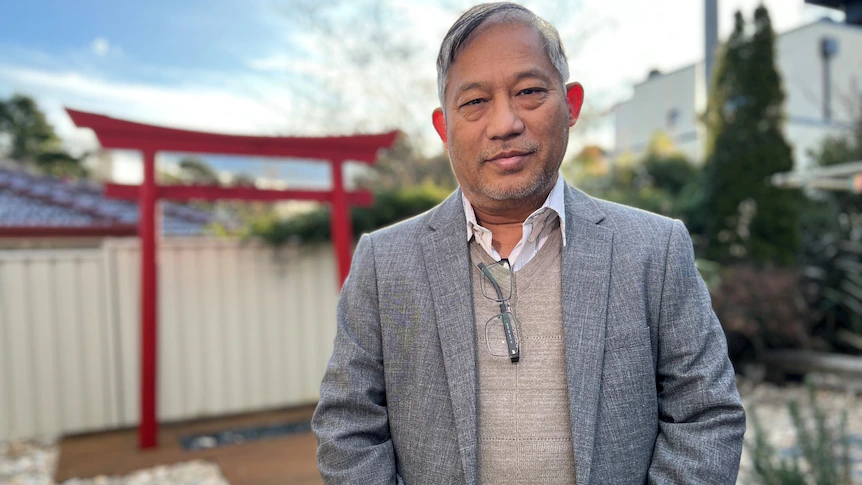Chris Sidoti quoted by ABC Australia.
Australian officials set to attend opening of Myanmar ‘representative office’ in Canberra for shadow government
28 July, 2022
Senior Australian foreign affairs officials are set to attend the opening of a new “representative office” for Myanmar’s shadow civilian government in Canberra next week, in a sign the Albanese Government is increasingly willing to build political links with the military regime’s opponents.
Myanmar’s National Unity Government (NUG) has announced it will open its own diplomatic mission in a rented house in the inner Canberra suburb of Deakin, around 2 kilometres from Myanmar’s official embassy in Yarralumla.
The NUG’s representative to Australia, Dr Tun-Aung Shwe, told the ABC that supporters in the Myanmar community had donated furniture and equipment for the diplomatic mission, as well as raised money to pay the rent.
He plans to work there full-time, with the help of several part-time volunteer staffers.
“People say the NUG is just a government ‘in the air.’ But this office will send a signal that we are not just an organisation in the air — we are physically present in the capital in Australia,” he said.
Dr Shwe said that, while Foreign Minister Penny Wong had declined to attend next week’s opening because she was travelling, several Department of Foreign Affairs and Trade (DFAT) officials had accepted the invitation.
“This is a significant signal that the Australian government is going to strengthen engagement with NUG. It’s a very important and strong signal,” he said.
“It is a great honour to me.”
The NUG has been pressing the international community to recognise it as the country’s legitimate government instead of the junta, which seized power in an illegal coup early last year.
Only one country — the Czech Republic — has so far done so, although last year the European Parliament also voted to extend recognition to the NUG.
The Australian government maintains that it recognises states rather than governments.
It also maintains a substantial diplomatic presence in Myanmar, although it has effectively downgraded ties, with Australia’s new head of mission, Angela Corcoran, declining to present her credentials to the junta.
Australia has been keen to maintain communication links with the military junta, in part because it wants to continue to press the regime to free imprisoned Australian economist and Aung San Suu Kyi adviser Sean Turnell.
But the Foreign Minister Penny Wong has indicated the new government was likely to impose new sanctions on senior members of the military regime.
She has also flagged last month that she’d be willing to continue meeting with National Unity Government representatives now that she holds office — a step that former Foreign Minister Marise Payne never took.
Australian government hardens stance on military junta
DFAT has been asked to conduct a wide-ranging review of the government’s policies on Myanmar, and has been holding meetings with a range of experts and civil society groups.
And the Albanese government’s attitude towards the junta is only likely to harden further after the regime’s decision to execute four democracy activists, which drew a furious reaction from the international community.
Senator Wong labelled the executions “appalling” and earlier this week a senior DFAT official hauled in Myanmar’s new Chargé d’Affaires in Canberra, Thet Tun, to convey Australia’s anger.
In a statement, a spokesperson for the department said officials “called in Myanmar’s Chargé d’Affaires to convey Australia’s strong condemnation of the executions” on the same day Senator Wong issued her statement.
“We appreciate the importance of understanding many perspectives on Myanmar and Australian officials engage with a range of stakeholders, including community members, civil society representatives and other experts on a regular basis.”
Chris Sidoti — who is a member of the Special Advisory Council for Myanmar and an expert on international human rights law — said there were signs that Australian politicians and officials were now looking for opportunities to deepen ties with the NUG.
“It certainly indicates to me an increased desire to engage with the NUG and cooperate with the NUG. I hope it also indicates an increased willingness to distance the government further from the military,” he told the ABC.
“Australia hasn’t responded adequately to the coup, in fact we’ve barely responded at all, except rhetorically.”
Dr Sidoti also suggested that the National Unity Government should go a step further and appoint an Ambassador to Australia who could challenge the legitimacy of the current Chargé d’Affaires representing the junta.
“If the NUG appoints an Ambassador, then the Australian government will then need to decide which diplomatic representative it accepts as the representative of Myanmar,” he said.
“The military hasn’t succeeded in its coup. It controls very little territory in Myanmar, so it can’t even claim to be the de facto government.”
“The legitimate government, the NUG, is the one that should be recognised.”


